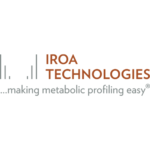In the rapidly advancing field of metabolomics, one word echoes above all: standards. Why are standards crucial for metabolomics? What role do they play in ensuring consistent and reliable results across different laboratories and experiments? More importantly, how are metabolomics standards revolutionizing the way we understand biological systems?
This article delves into the importance of metabolomics standards, exploring the various types, their application, and how they contribute to the credibility and reproducibility of research. Whether you’re a scientist in the field or someone interested in the power of biomolecular data, this is your guide to the standards shaping the future of metabolomics.
What Are Metabolomics Standards?
Metabolomics standards refer to a set of guidelines, reference materials, and protocols designed to ensure consistency, accuracy, and reproducibility in metabolomics experiments. These standards are essential for comparing results across different laboratories, developing new technologies, and advancing the overall understanding of metabolism in living organisms.
Think of metabolomics standards as the “rulebook” that every researcher should follow to ensure their findings are credible and usable by others. Without these standards, the field would struggle to make reliable discoveries or draw meaningful conclusions from complex biological data.
Types of Metabolomics Standards
Metabolomics standards can be classified into several categories based on their role in the experimental process. Below are the key types:
1. Analytical Standards
Analytical standards are pure chemical compounds that serve as benchmarks in experiments. They help researchers identify and quantify metabolites in a sample by providing known reference points. For example, when running a liquid chromatography-mass spectrometry (LC-MS) experiment, analytical standards ensure that the instruments are correctly calibrated and that the results are accurate.
2. Biological Reference Materials
Biological reference materials are samples that have been thoroughly characterized for their metabolite composition. These reference materials allow laboratories to assess the performance of their analytical methods and compare their results with others. For example, a blood plasma sample with known concentrations of key metabolites could be used to validate the accuracy of a metabolomics experiment.
3. Reporting Standards
Another critical type is reporting standards. These are guidelines that dictate how researchers should report their experimental methods, data analysis techniques, and results. Initiatives like the Metabolomics Standards Initiative (MSI) aim to provide consistent reporting formats so that other researchers can replicate studies or build upon existing data.
4. Software and Data Standards
With the enormous volume of data generated in metabolomics, it’s essential to have standardized software tools and databases for analysis. Data standards ensure that results from different platforms and studies can be easily shared, integrated, and interpreted. Common formats like mzML and databases such as MetaboLights or HMDB (Human Metabolome Database) play a crucial role here.
The Importance of Metabolomics Standards
Why are metabolomics standards so important? It boils down to three key reasons:
1. Ensuring Reproducibility
One of the biggest challenges in scientific research is reproducibility—ensuring that an experiment can be repeated by others with the same results. In metabolomics, the complexity of biological systems, combined with the sensitivity of analytical techniques, makes reproducibility particularly challenging. Metabolomics standards provide a way to ensure that results are consistent and reliable, regardless of where or when the experiment is conducted.
2. Facilitating Collaboration
In today’s research environment, collaboration is key. Scientists around the world rely on shared data and findings to advance their work. Metabolomics standards allow researchers to compare data across different studies, even when they are conducted in different labs using different methods. This enables global collaboration and accelerates discoveries in fields like drug development, nutrition, and disease research.
3. Advancing Technological Development
Standards are not just about ensuring quality; they also drive innovation. By providing a consistent framework, metabolomics standards allow for the development of new technologies and analytical methods. When researchers and companies know the standards they need to meet, they can focus on improving techniques and instruments that adhere to those guidelines, leading to better tools for future discoveries.
Challenges in Implementing Metabolomics Standards
While the benefits of metabolomics standards are clear, implementing them is not always straightforward. Several challenges must be addressed:
1. Variability in Biological Samples
Unlike pure chemical compounds, biological samples are inherently variable. The concentration of metabolites can fluctuate based on factors like age, diet, and health status, making it difficult to establish universal standards for all sample types.
2. Evolving Technologies
Metabolomics is a rapidly evolving field, with new technologies emerging regularly. Keeping standards up to date with the latest advancements can be challenging, especially when new instruments or methods introduce novel sources of variability.
3. Data Management and Integration
As the volume of metabolomics data grows, so does the need for better data management and integration standards. Different databases, software platforms, and analysis tools must be able to communicate and share information seamlessly, which is not always the case.
Future of Metabolomics Standards
The future of metabolomics standards is exciting and full of potential. As the field continues to grow, we can expect the development of more comprehensive and widely accepted standards. These may include:
- AI-Driven Data Analysis: The use of artificial intelligence and machine learning to create predictive models and standardize data analysis across platforms.
- Personalized Standards: As metabolomics moves towards personalized medicine, standards may evolve to account for individual variations in metabolism.
- Global Collaboration Networks: Enhanced international collaboration will likely lead to the development of universal metabolomics standards, applicable across a wide range of biological and clinical contexts.
Conclusion: Why Metabolomics Standards Matter
Metabolomics standards are not just a technical requirement; they are the backbone of credible and reproducible research in the field. They enable scientists to trust the data, compare results across labs, and push the boundaries of what we know about metabolism.
As the field continues to evolve, these standards will only grow in importance, providing the foundation for groundbreaking discoveries in health, disease, and beyond. So, what role will you play in shaping the future of metabolomics? The answer starts with understanding and embracing the power of standards.
IROA Technologies is simplifying the metabolomics research requirements with its scientific technologies. It's cost-effective in nature and is used by many customers for metabolomics research. We offer various types of services like metabolite standards, amino acid library, organic acid metabolites, ion suppression, and many more.

























































